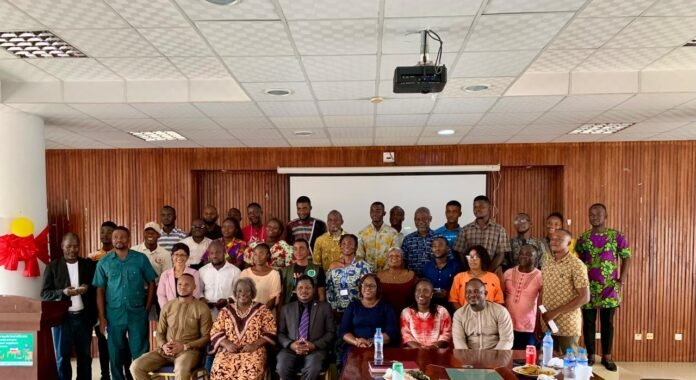MONROVIA, LIBERIA-Forty-one media practitioners are participating in a one-day Media Orientation training on the Community Revolving Drug Fund (CRDF) and cost-sharing.
The training aims at enhancing media practitioners’ capacity to identify, monitor, and address rumors related to the CRDF and cost sharing, thereby disseminating the right information to the public.
Deputy Minister for Policy and Planning, Malaya Chieyoe, said,” The ministry values the media as a strategic partner in promoting transparency, accountability, and public awareness”.
Deputy Minister Chieyoe said,” Information dissemination to citizens about the CRDF initiative is critical, hence the need for the partnership with the media to enable the ministry to succeed in promoting health outcomes in the country”.
He said the CRDF is intended to provide quality drugs for citizens at a small amount, eliminating the era where citizens will leave health facilities after medical examination without the requisite drugs needed due to the high prices of medicines.
Deputy Health Minister Chieyoe said the move will ensure the sustainability of the drugs and ensure the adequacy of drugs at health facilities across the country.
Meanwhile, Madam Louise Mapleh, Technical Assistant of the Community Revolving Fund (CRDF), providing an overview of the CDRF, said,” The initiative was introduced in Liberia in 1988 to address the major shortage of medicines owing to budgetary shortfall in the Health Sector”.
She said the Revolving Drug Fund originated from the 1987 African-wide WHO regional meeting in Bamako, Mali.
Through that meeting from Bamako, Madam Mapleh said,” The initiative was birthed and increased access to healthcare in Africa by making health services more effective, efficient, and financially sustainable”.
Madam Mapleh noted that in Liberia, community engagements, seed fund contributions, and participation facilitated the successful implementation of the Revolving Drug Fund.
She charged the participants to advocate for the success stories, support community engagement for the scheme, and report untoward effects for redress by the health sector.
They were also urged to foster understanding and empathy by focusing on solutions and humanizing stories.
The participants were drawn from the fifteen counties of Liberia.

